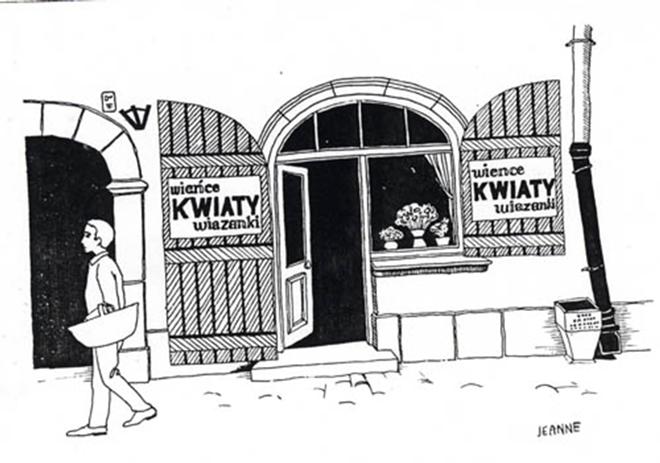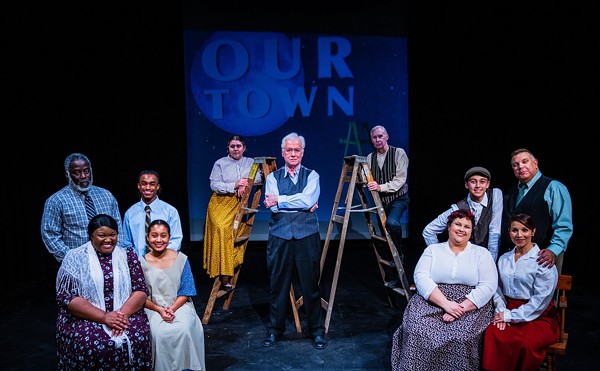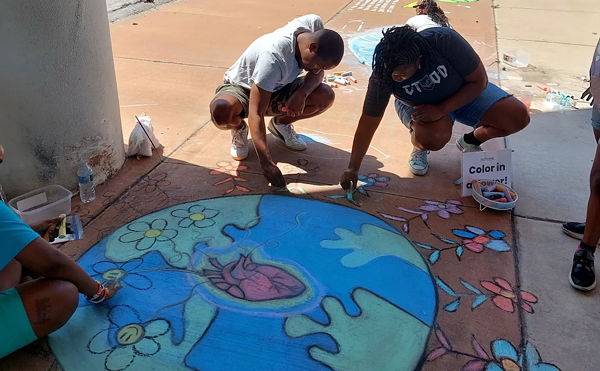Unscrew the locks from the doors!
Unscrew the doors themselves from their jambs!
—Epigraph to Howl, by Allen Ginsberg (1956)
In 1978-79, we lived in the People's Republic of Poland, where I was a Fulbright Professor at the Instytut Anglistiki in Warsaw. The country was a struggling satellite of the Soviet Union, and the police were the people's enemy.
I was teaching American poetry to Polish graduate students, whose English was fluent. They loved American poetry. "Do you really know Allen Ginsberg?" they'd gush, trying to imagine living in a society which permitted the author of incendiary poems like "Howl" to remain free. The poems of their best-known poets (like Nobel-prize-winner Czeslaw Miloz, exiled to America) were read from smuggled books at vodka-fueled samizdat (dissident) parties.
I'm remembering those days in the wake of Arizona's tone-deaf passing of its anti-immigrant bill. The fear in Communist Poland was always that you might get caught "without the right papers." The authorities (like the Arizona legislators) said "What's the problem? If you're a legitimate citizen, you'll have the right papers." But in practice these were often less "right" and more vague than one might think. The thing was, you didn't ever want the police to stop you.
The rules were so complicated that we hired a "maid," Urszula, not to clean, but to shop for certain rationed items and to interpret various rules. "If you get lost," she told us, "whatever you do, don't ask a policeman." Urszula had a Ph.D from the University of Warsaw in economics (totally useless in Poland's closed economy).
One evening early in our stay we'd gone to the opera, one of the perks of the Communist system: world-class opera for about 5 bucks a ticket. Waiting outside for our bus, we heard a commotion across the street: two men were beating and kicking another man who had fallen on the sidewalk. As we instinctively started to head over there, our Polish companion put his hand on our shoulders. "That's the police, eradicating drunkenness. Don't say anything." We didn't; our visas were back in our apartment.
Arizona isn't Communist Poland, but the new law, with its open-ended "reasonable suspicion," reeks with that authoritarian stench: it picks on the powerless. Arizona isn't alone, either, as pockets of anti-immigrant feeling have flared up in other states, including Florida.
But why I'm thinking of Poland is really this: In their hearts, the Poles weren't afraid, or depressed. In the grimmest times, Warsaw remained full of bustling kwiatys, flower shops — the Poles brought flowers to every occasion. Oppressed by history and geography, they were still high-spirited, always subverting authority in their sly way. (Warsaw bus drivers, driving by the Russian-built "Palace of Culture," would often ostentatiously spit out the window.) This is one reason they suffered more than other Soviet satellites, who were less openly antagonistic to the Russians.
The Republicans seem to want us to be afraid of immigrants, gays, "elites," atheists, liberals, socialists — they're all out to "destroy our country." Take back America is their cry, forgetting that immigrants (and the others) have made America. Tightening up the border is a good idea, but let's go after the bosses instead of the immigrants, most of whom come here in a desperate attempt to feed their families. In any case, let's not demonize them, or be afraid. My immigrant grandfathers, who came from Germany and Ireland, were a little scary, but once you got to know them they were pussycats.
Bill Moyers, retiring from PBS, said recently, "Once again the fate and character of our country are up for grabs." He may be right, as he often has been. So let's be fair-minded and high-spirited, like the Poles. In a letter to the New York Times, our friend, Florida poet Steve Kronen, suggests, "Let's pass a real immigration bill: Unless you can prove you're Cherokee..."
So, wear a feather, or buy some flowers.
Holy forgiveness! mercy! charity! faith! Holy! Ours! bodies! suffering! magnanimity!
Holy the supernatural extra brilliant intelligent kindness of the soul!
—The final lines of Howl, by Allen Ginsberg (1926-1997)
Peter Meinke is the Poet Laureate of St. Petersburg. He and Jeanne have emigrated to the Fine Arts Work Center in Provincetown, MA, but will be home soon with the proper papers.

















